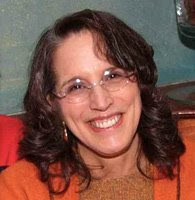In school I learned that when the American pioneers left the east coast in their covered wagons, they took two books with them: The Bible and a copy of the complete works of Shakespeare.
I grew up in Houston, Texas, in the Bible Belt of America. As a child, I did not really know what this Bible was, or Shakespeare either for that matter. Today, I have multiple copies of both the Bible and Shakespeare. No, the copies are not identical. It is amazing how many different versions there are of the Bible. Even Shakespeare is getting his due with the historical work looking into his true identity.
Seeking the meanings of a spiritual text is certainly a lifelong task. I spent eleven years studying with a teacher who translated the text from the Greek and Hebrew. I learned that the Greek Bible we study was written using the Greek of Alexander the Great. My teacher taught that Alexander's Greek is one of the most precise languages ever. I have studied with many other teachers since only to realize that whom one selects as a teacher is a very important decision. I have learned much from each of my teachers.
As a child, I questioned why there were so many different types of religions and subtypes within each religion. I have studied with teachers from many subtypes of Christianity as well as with several Rabbis, and looked into Eastern beliefs. My best answer to my childhood question is that we humans have to have a teacher. The universal being (you would be surprised at how many names there are for this) has to send us someone to teach us, which is done in every generation and there can be multiple teachers in a generation. If one goes back to the teachings of the initial teacher of any movement that becomes a religion or subreligion, one will find an amazing consistency in the teachings.
Each teacher uses different examples to illustrate his or her teaching. The students at the time the teacher is alive can be kept safe from misunderstandings because they can check with their teacher. However, after the teacher has passed on, as they must do, then over time the teachings get distorted by our human tendency to place more importance on the physical than on what we cannot see (spiritual). The rituals that were meant to help us understand a spiritual teaching get overemphasized. Before long, people are fighting over the rituals.
Look yourself to see what it is that people in different religions disagree over. However, if we would all ask what the original teachings were with less emphasis on what the illustrations were, we might find that there is much we could agree on and perhaps not get involved in so many conflicts. Most of all, we need to define what we want in a spiritual teacher. They say the teacher shows up when you are ready.
I always return to the story of the blind men and the elephant. You know, one said an elephant is like a rope, one said the elephant is like a tree trunk, another said it is like a wall, yet another said it is like a hose. The poor elephant is misunderstood by them all.
Subscribe to:
Post Comments (Atom)

No comments:
Post a Comment